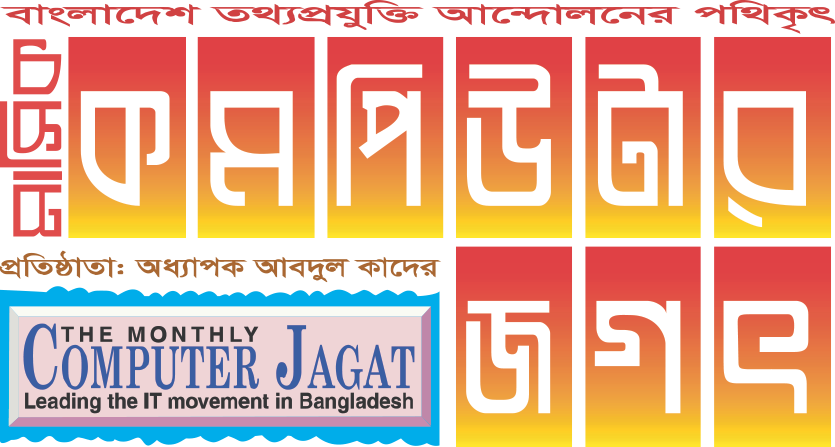হোম > Information & Communication Technology for Economic Development
লেখক পরিচিতি
লেখকের নাম:
আহমেদ হাফিজ খান
মোট লেখা:১৫
লেখা সম্পর্কিত
পাবলিশ:
২০১২ - মার্চ
তথ্যসূত্র:
কমপিউটার জগৎ
লেখার ধরণ:
প্রযুক্তি বিপ্লব
তথ্যসূত্র:
ইংরেজি সেকশন
ভাষা:
বাংলা
স্বত্ত্ব:
কমপিউটার জগৎ
Information & Communication Technology for Economic Development
The global economic crisis has increased the urgency for countries to identify new sources of growth and develop a sustainable path to economic success. Traditional reliance on natural resources is insufficient to support long-term growth. Only through entrepreneurship and innovation can countries enhance competitiveness, diversify their economies, and realize all the benefits of the rapidly expanding digital economy.
A strong governmental commitment to information and communication technology (ICT) is one of several critical elements needed to help accelerate entrepreneurship and innovation. Quantitative research, along with real-world examples from emerging and advanced nations, firmly establishes the social and economic benefits of ICT. These benefits include increases in the pace and quality of innovations, as well as macroeconomic benefits such as per-capita GDP growth, job creation, and rapid improvements in labor and total factor productivity.
Our neigbours success offers us a ray of hope for our development of ICT sector and promotion of entrepreneurship inthecountry. Software Parks, Innovation Parks, hitech park, Incubators engage local ecosystems that support entrepreneurship and lead to innovations that can improve lives and generate economic prosperity.
ICT is Critical to Economic Growth and Innovation ICT, along with education/training and R&D, is one of the most important elements in building a platform for entrepreneurship and innovation. The positive contribution of ICT to economic growth and innovation in emerging and advanced countries has been repeatedly established through both quantitative and qualitative research. On a macroeconomic level, ICT usage has been shown to be correlated with global competitiveness, total factor productivity growth, increases in GDP, and many more direct economic benefits.
World Bank identified a strong relationship between gross national income (GNI) and ICT development (as measured by the World Bank’s ICT Development Index, or IDI). Additional studies have found that emerging countries with stronger ICT infrastructures attract significantly more business from off shoring, outsourcing, and foreign investment.
ICT has also been found to improve enterprise performance in emerging countries by increasing sales, employment, profitability, and labor and total factor productivity. Broadband Internet access and mobile telephony are two of the most beneficial elements of ICT. A recent World Bank study of 120 countries found that every increase of 10 percentage points in the penetration of mobile phones in emerging countries increases economic growth by 0.8 percentage points. The economic impact in emerging countries is, in fact, much higher than in advanced countries.
The impact of broadband Internet access is equally powerful. For every percentage point increase of broadband penetration at the state level, employment increases by 0.2 percent to 0.3 percent per year.
In rural and low-income areas, broadband access has been shown to dramatically increase productivity and contribute to income diversification, rural nonagricultural employment, and higher incomes for agricultural jobs.
Many of the world’s fastest growing countries—including Brazil, Russia, India, China, and Indonesia—are rapidly connecting their citizens to the Internet. Already, the Boston Consulting Group reports that these “BRICI” countries have 610 million Internet users, a number that is expected to nearly double by 2015.
The value of ICT extends far beyond direct economic benefits. ICT is a driving force in the acceleration of entrepreneurship and innovation, making it easier to identify and develop good ideas, and create and disseminate new products and services. In one survey of innovative enterprises in Europe, ICT enabled about half of all innovations introduced in recent years. Across the European Union, 32 percent of companies reported innovations, with IT enabling half of the product innovations and 75 percent of the process innovations.
BRICI countries are hosting a summit in India in March 2012 and India has proposed to setup a development bank similar to Asian Development Bank by BRICI. Bangladesh has established Bangladesh Development Bank but its activities do no support entrepreneurship and innovations in the ICT sector. There is no policy to measure the value of intellectual property and neither there is expertise in the banking staffs to promote knowledge based industry. Bangladesh talents with all the hurdles have established themselves as top freelancers and their income growth surpasses the growth of established ICT industries.
Government is keen to established Vision 2021:Digital Bangladesh while the bureaucracy and the financial sector is putting up more barriers to entrepreneurship and innovation. The recent press conference by BASIS informing of the recent decision by Ministry of ICT of hijacking Janata Tower and the decision not to establish Software Technology runs against the spirit of Digital Bangladesh. The nation has now one question – Is the Vision 2021: Digital Bangladesh a hoax and simply a political stunt?
Today our neighbors like India, China and Malaysia are busy promoting innovation and entrepreneurship whereas the dream of first Software Technology Park in Bangladesh is blown away by the tsunami of Ministry of ICT. Ministry of ICT must remember ‘Not to tinker with something what it does not understand’.
CJ WEB
লেখাটি পিডিএফ ফর্মেটে ডাউনলোড করুন
লেখাটির সহায়ক ভিডিও
পাঠকের মন্তব্য
২০১২ - মার্চ সংখ্যার হাইলাইটস
অনুরূপ লেখা



